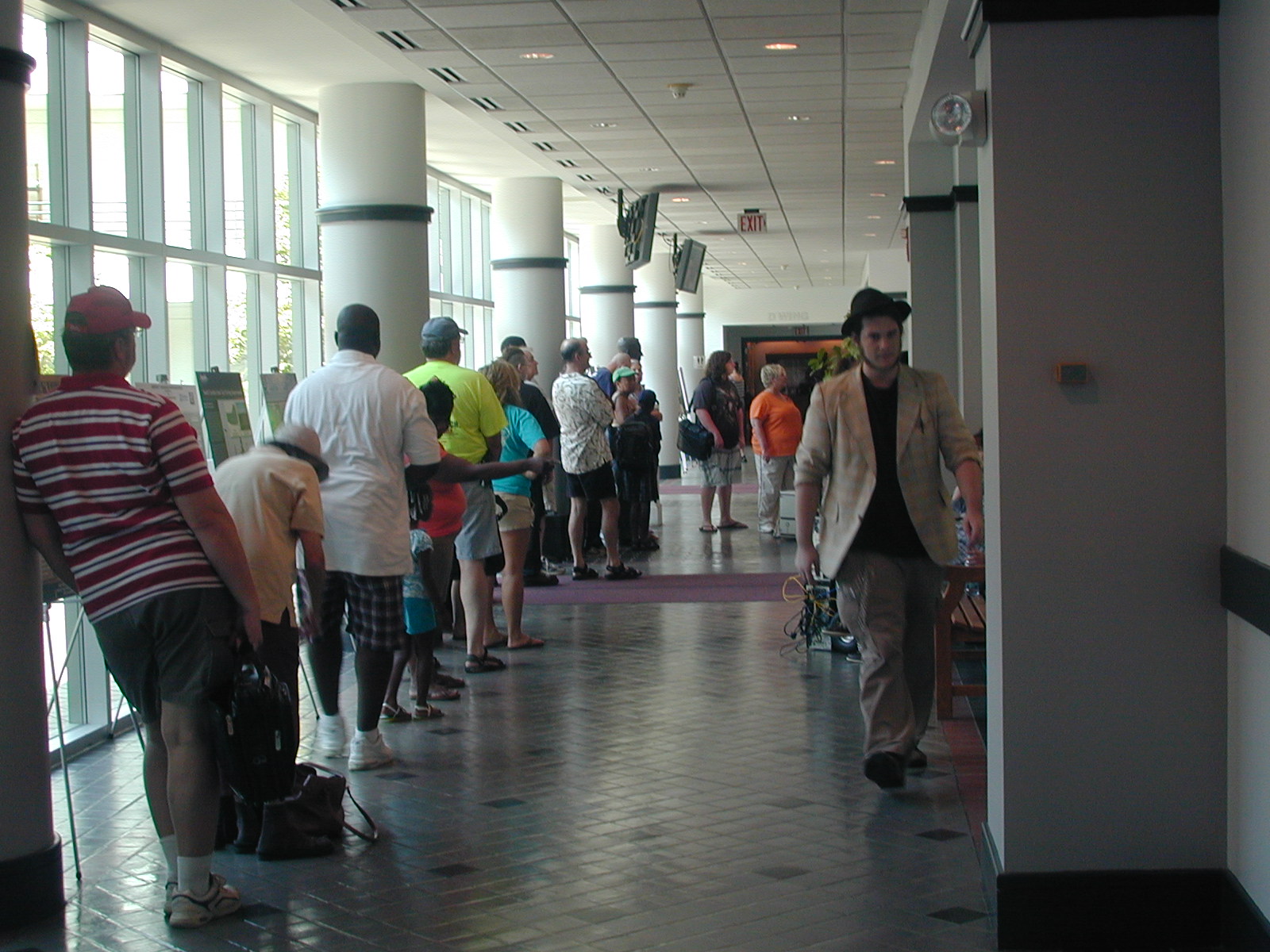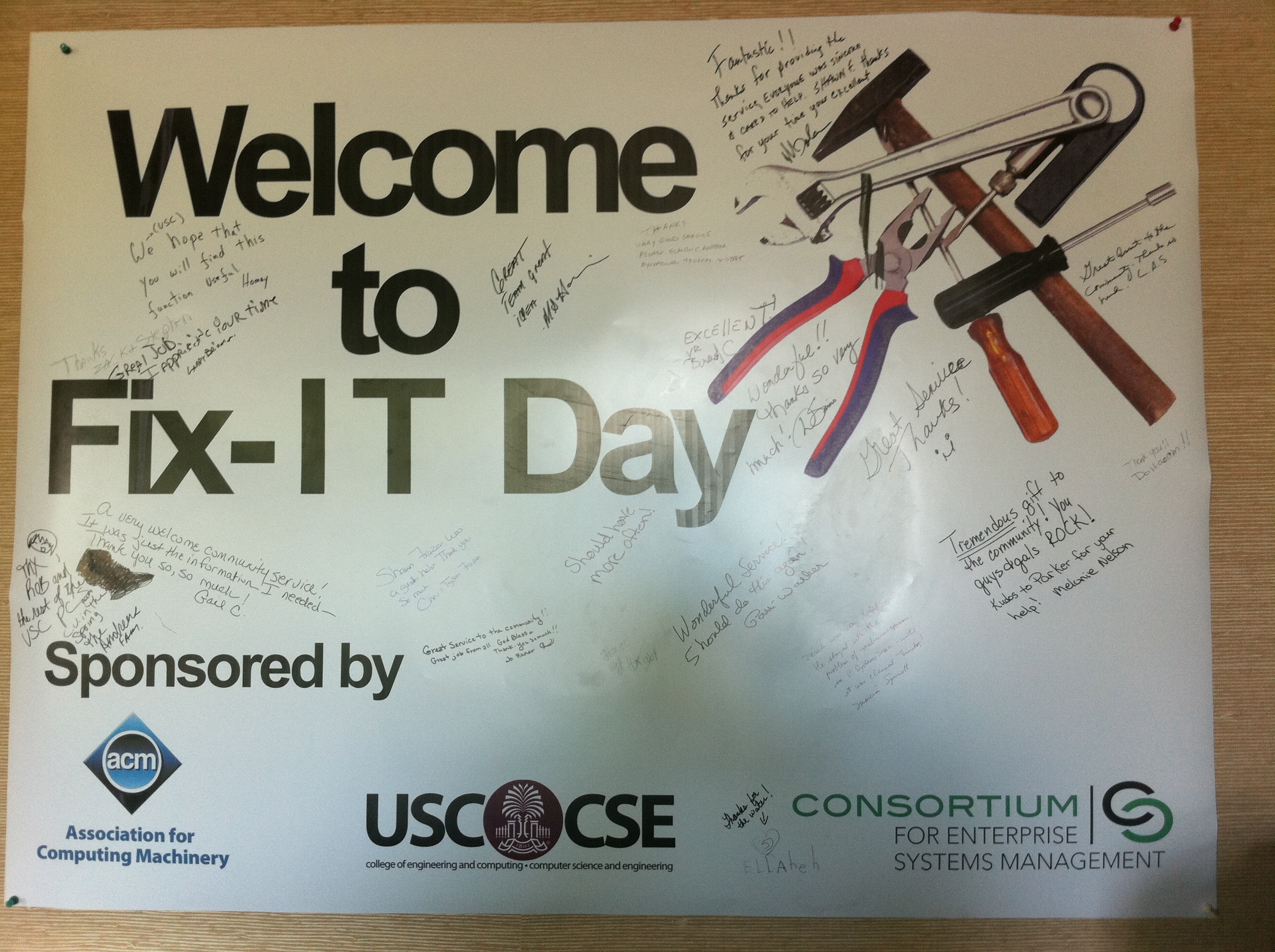Senior Faculty Position Opening in Safety-Critical Systems
The College of Engineering and Computing at the University of South Carolina seeks to fill one tenure-track position at a senior rank in computer science and engineering. The position, in conjunction with corresponding positions in electrical engineering and mechanical engineering, is intended to establish a national center of excellence in safety critical systems, especially for aerospace applications. Particular areas of specialization include software engineering, computational modeling, sensing and control, and condition-based maintenance. Requirements include a Ph.D. in a relevant field and a record indicating exceptional accomplishments and potential for research. Support from the Computer Science and Engineering Department will include low teaching loads, competitive salary, and generous start-up funds. Responsibilities are to establish a research program of national and international prominence, with a dedication to graduate and undergraduate education. Persons joining the program will have significant opportunities and access to world-class university and industrial aerospace facilities and staff across the state of South Carolina.
Safety-Critical Systems are those that manage the infrastructure and technological components of our society, including our transportation systems. They are the systems whose failure can lead to catastrophic events. Aerospace systems are an example of these, and ensuring their safety is a critical problem. It is also a difficult problem, in that aerospace systems are very complex with many interacting parts, all of which must operate correctly over lifetimes that might extend for decades. Solutions to the problem require means to assess the vulnerabilities of a system, determine its state, and decide on the appropriate actions to verify its safety and thus trustworthiness. The College of Engineering and Computing is being proactive by making strategic faculty hires to meet the needs of the aerospace industry. The expertise of the current faculty (i.e., in composite materials, thermo-fluids, structural health monitoring, and future fuels) can partially meet the emerging needs of the aerospace industry. The proposed cluster focusing on Safety-Critical Aerospace Systems complements the current strength while bridging a critical gap in our endeavor to establish USC in the area of aerospace engineering and computing.
Software has become a key part of all complex societal systems on which we have come to rely. Reliance requires trustworthiness, and this can be established only by verifying the software that processes the sensor data obtained for monitoring and controlling societal systems. However, new software engineering techniques are needed for dealing with the complex, distributed, and heterogeneous systems being considered here. The verification of software for such systems is unsolved and amenable to significant innovation: it will be viable as an important research and education area for the foreseeable future. This position will contribute to and benefit from existing research programs in multiagent and service-oriented software within the Computer Science and Engineering Department.
The proposed faculty member in software engineering would contribute substantially and creatively to the analysis, visualization, and automated understanding of the data that is produced by the distributed heterogeneous sensors used to assess the state of an aerospace or other safety-critical system. Software engineering would be synergistic with sensor signal processing and condition-based maintenance: the other proposed hiring areas in this cluster will contribute to ensuring trust and safety, resulting in a creative and transformative use of USC resources and leading to significant improvements to USC's teaching mission and research enterprise.
The Department of Computer Science and Engineering is in the College of Engineering and Computing and offers bachelor's, master's, and doctoral degrees. The Department has 21 full-time faculty (nine of whom are NSF CAREER award recipients), an undergraduate enrollment of 424 students, a graduate enrollment of 88 students, and over $2 million in annual research expenditures. New leadership in the College has made growth of the Department a high priority. The University of South Carolina is located in Columbia, the capital and technology center of South Carolina, and is the comprehensive graduate institution in the state, with an enrollment of more than 25,000 students. For more information, see our homepage.
Applications must include curriculum vitae, research and teaching plans, and contact information for at least three references. Applications should be submitted electronically to ClusterSearch@cec.sc.edu. The screening of applicants will begin on May 1, 2011 and will continue until all three positions are filled.
The University of South Carolina is an affirmative action, equal opportunity employer. Women and minorities are encouraged to apply. The University of South Carolina does not discriminate in educational or employment opportunities or decisions for qualified persons on the basis of race, color, religion, sex, national origin, age, disability, sexual orientation, or veteran status.
 The fragile regions in mammals’ genomes that are thought to play a key role in evolution go through a "birth and death" process, according to new work by University of South Carolina and University of California-San Diego researchers.
The study, published in the journal Genome Biology, could help researchers identify the current fragile regions in the human genome – information that may reveal how the human genome will evolve in the future.
“We made a step towards understanding the mechanism of genome rearrangements that ‘shuffle’ genomic architectures and represent one of the major driving forces behind evolutionary diversity. In contrast to previous studies, our results allow one not only to analyze the evolution in retrospect but also to predict the future changes in genomic architectures,” said Dr.
The fragile regions in mammals’ genomes that are thought to play a key role in evolution go through a "birth and death" process, according to new work by University of South Carolina and University of California-San Diego researchers.
The study, published in the journal Genome Biology, could help researchers identify the current fragile regions in the human genome – information that may reveal how the human genome will evolve in the future.
“We made a step towards understanding the mechanism of genome rearrangements that ‘shuffle’ genomic architectures and represent one of the major driving forces behind evolutionary diversity. In contrast to previous studies, our results allow one not only to analyze the evolution in retrospect but also to predict the future changes in genomic architectures,” said Dr. 
 The
The  Attendees were very grateful for the free service, some saying that they could not afford to get their computer fixed, other stating that they had paid to get it fixed but the fix did not work. Some attendees even left messages of encouragement on the poster board. It is clear that if the ACM student group held the event again that even more people would show up.
The ACM student chapter has shown their sincere commitment to helping the community, and this commitment was appreciated by the community. The students are now in the process of compiling their experience and data, revising their protocol, and planning for the next event.
If you are interested in more information, or you are a Computer student interested in joining the ACM student chapter the just
Attendees were very grateful for the free service, some saying that they could not afford to get their computer fixed, other stating that they had paid to get it fixed but the fix did not work. Some attendees even left messages of encouragement on the poster board. It is clear that if the ACM student group held the event again that even more people would show up.
The ACM student chapter has shown their sincere commitment to helping the community, and this commitment was appreciated by the community. The students are now in the process of compiling their experience and data, revising their protocol, and planning for the next event.
If you are interested in more information, or you are a Computer student interested in joining the ACM student chapter the just